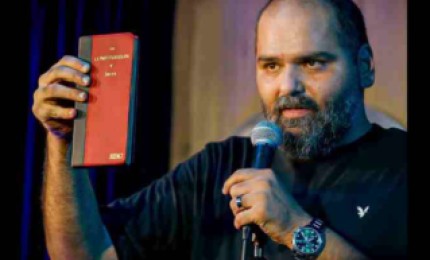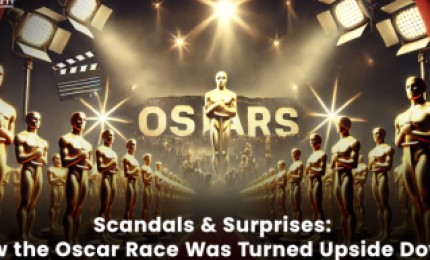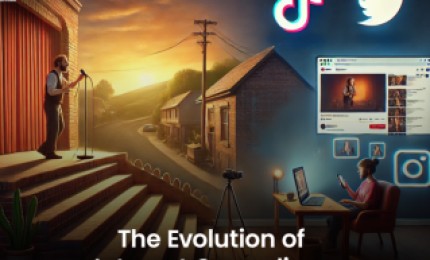Film festivals are vibrant hubs for independent cinema, offering a platform to view unique films and forge valuable industry connections. They're celebrated for fostering communities and potentially opening doors to future collaborations with influential filmmakers like Wes Anderson or Jason Reitman. However, for those who are introverted, find social gatherings awkward, or simply feel overwhelmed by the bustling festival atmosphere, navigating these events can be challenging. Here are practical tips to help you make film festivals both productive and enjoyable, allowing you to expand your network and enhance your indie film résumé.
Firstly, consider attending film festivals even if you don't have a film screening. Start by identifying locations where you have connections or would enjoy spending a few days. Then, search for film festivals in those areas.
Regarding the choice of festivals, smaller ones often provide a more manageable and enjoyable experience for those who find large crowds overwhelming. For example, while major festivals like Sundance and Tribeca can feel intense due to their size and the sheer volume of attendees, smaller festivals like the Woodstock Film Festival offer a more relaxed and creative atmosphere.
A useful strategy is to spend time at less central venues. In Woodstock, while the main theater on Tinker St. is typically crowded, satellite venues in towns like Rhinebeck and Rosendale are less congested, offering a more intimate setting for watching films and interacting with filmmakers during Q&As. These locations provide a chance to engage meaningfully with creators without the stress of large crowds.
Most festivals offer shuttle services to these more remote venues, so it's worth researching transportation options beforehand. Additionally, try to attend the festival during its initial days, which is often when filmmakers and stars are more likely to be present and available for audience interaction. This approach can enhance your festival experience, allowing you to build your network and add valuable contacts to your indie film résumé in a setting that suits your preferences for interaction.
First, mark the festival dates on your calendar and cross-reference them with potential hosts among friends and relatives. Booking travel and accommodation early can save money and cement your commitment to attend.
Consider your preferred way to experience the festival. For example, I typically buy single tickets and favor quieter, remote venues over crowded panels and bustling parties. I find it essential to have a few hours of downtime each day to recharge, which can also prevent feeling overwhelmed by spending consecutive hours in dark theaters. For instance, during the Nantucket Film Festival, I spent an enjoyable afternoon on the beach, which unexpectedly led to networking opportunities. Downtime can be surprisingly productive; people often make connections in casual settings, such as on the slopes at Sundance or, in my case, a beach day with a well-connected editor.
Alternatively, you might prefer a festival pass that offers broader access to screenings and events, including industry gathering spots like festival cafés or tents. Another engaging way to experience the festival is by volunteering, which can be particularly beneficial if initiating conversations isn't your strong suit. Volunteering puts you in a central role, facilitating interactions with filmmakers and talent. I once advised an actor to volunteer managing a venue; he formed valuable relationships and enjoyed social opportunities after hours. If interested in volunteering, it’s wise to reach out six to eight months in advance to secure a position. This approach not only enriches your festival experience but can also help forge meaningful industry connections.
Set a reminder for four weeks before the festival starts; this is typically when the festival program is available online, allowing you to purchase passes and tickets. Since it's impossible to see everything, I streamline my choices by focusing on NYC-based directors who have comedies at the festival. This approach significantly narrows the options, given the predominance of independent dramas. I also steer clear of mainstream films likely to draw large crowds and instead opt for a few shorts programs. Shorts are appealing because their directors are often transitioning to feature films, and the Q&A sessions offer a buffet-style opportunity to engage with multiple filmmakers in the time it would take to watch one feature film.
For introverts, remember it's perfectly fine to avoid active networking if it feels overwhelming. Platforms like IMDbPro, social media, and email enable you to connect with rising filmmakers without direct confrontation. For instance, after watching "Putzel" at Woodstock, I admired the film but only briefly met the director, Jason Chaet, before he was whisked away. Rather than compete for his attention, I followed the film on social media, blogged about it, and interacted with its Facebook page. Jason appreciated the support, accepted my friend request, and I continue to support his work as a devoted fan. This approach shows that you can form meaningful industry relationships without needing to be socially aggressive.
Also, make a point of watching films you're not involved with. The audience at these screenings is often a mix of friends and family of the filmmakers, industry professionals, locals, and genuine cinema fans. Position yourself among those simply there to enjoy the film, as this can be a more relaxed and equally enriching way to experience a film festival.
To enhance your film festival experience, take these proactive steps after selecting the films you want to see from the program. Identify your top three or four choices and take the time to watch any previous works by their filmmakers. Imagine how impactful it would be if, as an emerging filmmaker, an audience member not only enjoyed your current film but also appreciated your earlier work. Such interactions are rare but memorable and demonstrate a genuine interest in the filmmaker's career.
Additionally, collecting business cards is a practical networking tip at film festivals. To make each connection meaningful, jot down notes on the back of each card—details like the setting of your meeting, what the person wore, and key points of your conversation. This is particularly helpful if you’ve been networking over drinks or at high-altitude venues where memories might be less clear the next day.
Regarding social events, remember that attending parties is not obligatory. If you do choose to attend, and socializing feels daunting, you might find it easier to connect with someone who also seems out of place. Expressing your discomfort can lead to surprising and valuable connections, as shared discomfort can forge quick bonds.
After the festival, don’t forget to follow up. Set a reminder to reach out to your new contacts approximately a week after the event ends—this gives them time to recuperate from the festivities but ensures you’re still fresh in their minds. Maintaining these connections can be crucial for future collaborations.
Lastly, remember to enjoy the experience. Film festivals are about celebrating cinema, not enduring stress. Feel free to simply watch films and leave. There’s no obligation to network, and even attending can be a worthwhile investment, often eligible as a tax deduction. Enjoy the art of filmmaking in a way that suits you best.
Film festivals offer a unique and vibrant platform for viewing independent cinema and connecting with future collaborators. For introverts, these events can be daunting, but with the right strategies, they can be both enjoyable and fruitful. By choosing smaller festivals, focusing on less crowded venues, and utilizing downtime wisely, introverts can navigate these events comfortably. Volunteering or preparing in advance by researching films and filmmakers can also enhance the experience. Ultimately, film festivals should be a fun and enriching experience, offering everyone, regardless of personality type, the opportunity to engage with the art of cinema on their own terms.

15 Ways to Make Money as a Singer: A Complete Guide to Monetizing Your VoiceEarning money as a singer requires more than just talent, it demands creativity, persistence, and a willingness to explore...
Read Blog
When Kunal Kamra's Humor Got Him Into Trouble: A Deep Dive into the Controversies of India's Most Fearless ComedianKunal Kamra Controversy: Laughter, Lawsuits, and the Limits of Free SpeechStand-up...
Read Blog
The Oscar race is always full of drama, but this year? It’s absolute chaos. From shocking controversies to unexpected winners, the battle for Best Picture at the 2024 Academy Awards has taken...
Read Blog
In the ever-changing landscape of entertainment, few transformations have been as dramatic and swift as the rise of internet comedians. What began as a platform for amateur funny videos has evolved...
Read Blog
Introduction: In the competitive world of entertainment and talent, having the right representation can make all the difference in launching and sustaining a successful career. Whether you're...
Read Blog.jpg)
While the world of modelling often dazzles with glitz and glam, it's also critical we discuss its darker shades, pulling the curtain back on some challenging realities. Today, let's embark on...
Read Blog